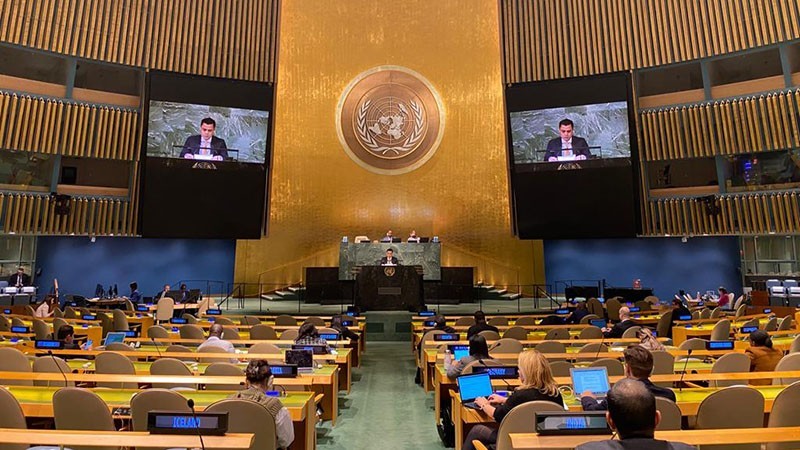
Vietnam calls for UN Security Council reform: Ambassador to UN
Latest
 |
| Ambassador Dang Hoang Giang, Permanent Representative of Vietnam to the United Nations, spoke at the debate at the UN General Assembly on Security Council reform. (Photo: WVR) |
On November 17, addressing a debate at the UN General Assembly on Security Council reform, the Vietnamese Ambassador praised the UNSC’s great efforts over the years to act on challenges, and maintain a large workload even during the COVID-19 pandemic.
The recent international situation shows that it is urgent to promote the reform of the Council, he said, emphasising the need to expand the number of permanent and non-permanent members of the UNSC in order to ensure fair representation for regional groups, especially developing countries.
Besides admitting more members, it is necessary to improve the UNSC’s working method, including limiting the use of veto within the scope of measures regulated in Chapter VII of the UN Charter, he said.
The Ambassador stressed that the UNSC also needs to strengthen discussions and decision-making on emerging security issues that directly threaten international peace and security, including climate change.
Representatives of many countries reiterated the proposal to reform the Council, which was agreed upon by nearly 70 senior leaders and many other representatives of UN member countries at the High-Level Week of the 77th session of the UN General Assembly in September. They also welcomed the President of the UN General Assembly’s 77th session for appointing a new Co-Chair for the Intergovernmental Negotiations (IGN) process to promote discussion on this issue.
The number of non-permanent members of the UNSC increased from 6 to 10 in 1965. In 1992, the UN General Assembly adopted Resolution 47/62 on “Question of equitable representation on and increase in the membership of the Security Council” and other related issues. Since 2008, according to Decision 62/557 of the General Assembly, every year countries also discuss this topic under the IGN mechanism.









